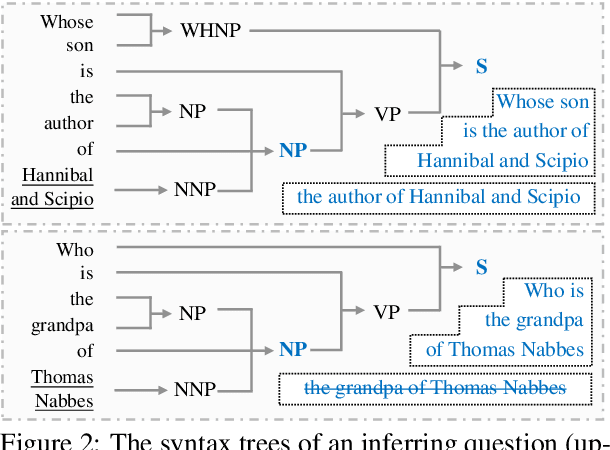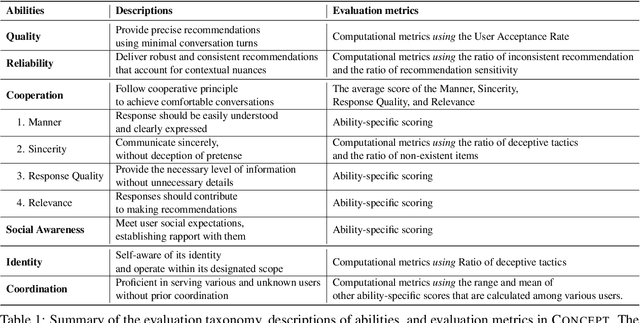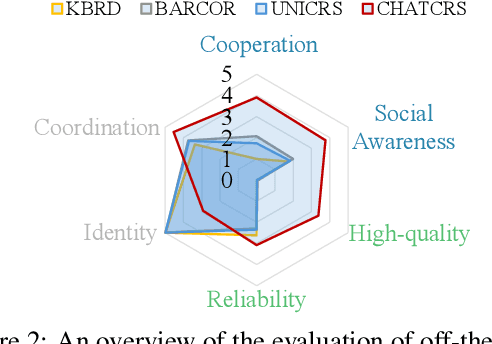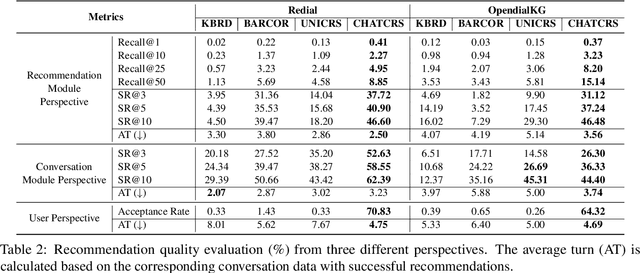Peixin Qin
SCOP: Evaluating the Comprehension Process of Large Language Models from a Cognitive View
Jun 05, 2025



Abstract:Despite the great potential of large language models(LLMs) in machine comprehension, it is still disturbing to fully count on them in real-world scenarios. This is probably because there is no rational explanation for whether the comprehension process of LLMs is aligned with that of experts. In this paper, we propose SCOP to carefully examine how LLMs perform during the comprehension process from a cognitive view. Specifically, it is equipped with a systematical definition of five requisite skills during the comprehension process, a strict framework to construct testing data for these skills, and a detailed analysis of advanced open-sourced and closed-sourced LLMs using the testing data. With SCOP, we find that it is still challenging for LLMs to perform an expert-level comprehension process. Even so, we notice that LLMs share some similarities with experts, e.g., performing better at comprehending local information than global information. Further analysis reveals that LLMs can be somewhat unreliable -- they might reach correct answers through flawed comprehension processes. Based on SCOP, we suggest that one direction for improving LLMs is to focus more on the comprehension process, ensuring all comprehension skills are thoroughly developed during training.
Beyond Persuasion: Towards Conversational Recommender System with Credible Explanations
Sep 22, 2024



Abstract:With the aid of large language models, current conversational recommender system (CRS) has gaining strong abilities to persuade users to accept recommended items. While these CRSs are highly persuasive, they can mislead users by incorporating incredible information in their explanations, ultimately damaging the long-term trust between users and the CRS. To address this, we propose a simple yet effective method, called PC-CRS, to enhance the credibility of CRS's explanations during persuasion. It guides the explanation generation through our proposed credibility-aware persuasive strategies and then gradually refines explanations via post-hoc self-reflection. Experimental results demonstrate the efficacy of PC-CRS in promoting persuasive and credible explanations. Further analysis reveals the reason behind current methods producing incredible explanations and the potential of credible explanations to improve recommendation accuracy.
CLAMBER: A Benchmark of Identifying and Clarifying Ambiguous Information Needs in Large Language Models
May 20, 2024



Abstract:Large language models (LLMs) are increasingly used to meet user information needs, but their effectiveness in dealing with user queries that contain various types of ambiguity remains unknown, ultimately risking user trust and satisfaction. To this end, we introduce CLAMBER, a benchmark for evaluating LLMs using a well-organized taxonomy. Building upon the taxonomy, we construct ~12K high-quality data to assess the strengths, weaknesses, and potential risks of various off-the-shelf LLMs. Our findings indicate the limited practical utility of current LLMs in identifying and clarifying ambiguous user queries, even enhanced by chain-of-thought (CoT) and few-shot prompting. These techniques may result in overconfidence in LLMs and yield only marginal enhancements in identifying ambiguity. Furthermore, current LLMs fall short in generating high-quality clarifying questions due to a lack of conflict resolution and inaccurate utilization of inherent knowledge. In this paper, CLAMBER presents a guidance and promotes further research on proactive and trustworthy LLMs. Our dataset is available at https://github.com/zt991211/CLAMBER
Concept -- An Evaluation Protocol on Conversation Recommender Systems with System-centric and User-centric Factors
Apr 06, 2024



Abstract:The conversational recommendation system (CRS) has been criticized regarding its user experience in real-world scenarios, despite recent significant progress achieved in academia. Existing evaluation protocols for CRS may prioritize system-centric factors such as effectiveness and fluency in conversation while neglecting user-centric aspects. Thus, we propose a new and inclusive evaluation protocol, Concept, which integrates both system- and user-centric factors. We conceptualise three key characteristics in representing such factors and further divide them into six primary abilities. To implement Concept, we adopt a LLM-based user simulator and evaluator with scoring rubrics that are tailored for each primary ability. Our protocol, Concept, serves a dual purpose. First, it provides an overview of the pros and cons in current CRS models. Second, it pinpoints the problem of low usability in the "omnipotent" ChatGPT and offers a comprehensive reference guide for evaluating CRS, thereby setting the foundation for CRS improvement.
Towards Equipping Transformer with the Ability of Systematic Compositionality
Dec 12, 2023



Abstract:One of the key factors in language productivity and human cognition is the ability of systematic compositionality, which refers to understanding composed unseen examples of seen primitives. However, recent evidence reveals that the Transformers have difficulty generalizing the composed context based on the seen primitives. To this end, we take the first step to propose a compositionality-aware Transformer called CAT and two novel pre-training tasks to facilitate systematic compositionality. We tentatively provide a successful implementation of a multi-layer CAT on the basis of the especially popular BERT. The experimental results demonstrate that CAT outperforms baselines on compositionality-aware tasks with minimal impact on the effectiveness on standardized language understanding tasks.
 Add to Chrome
Add to Chrome Add to Firefox
Add to Firefox Add to Edge
Add to Edge